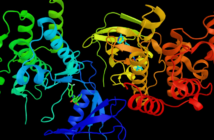Kimchi made without seafood products still has the same probiotic bacteria.
Good news, vegans: a new study finds that kimchi made without fish products has the same type of bacteria as more traditionally made kimchi. That finding suggests that any probiotic benefits associated with traditional kimchi could be present in vegan versions as well.
Along with other fermented foods like yogurt and kombucha, kimchi is surging in popularity as a probiotic food—one that contains the same kinds of healthy bacteria found in the human gut. A traditional Korean side dish, kimchi consists mainly of fermented cabbage, radishes, and other vegetables. But it’s normally made using fish sauce, fish paste, or other seafood.
That takes it off the menu for vegetarians. But in order to appeal to meat-eschewing consumers, some producers have begun making a vegan alternative to traditional kimchi.
“In vegan kimchi, producers swap in things like miso, which is a fermented soybean paste, in place of the seafood components,” says Michelle Zabat ’18, lead author of the study in the journal Food Microbiology. “We wanted to know what the effects of making that swap might be in terms of the microbial community that’s produced during fermentation.”
Working in the lab of Peter Belenky, PhD, an assistant professor of molecular microbiology and immunology, Zabat partnered with Chi Kitchen, a Pawtucket, RI-based company that makes both traditional and vegan kimchi. The researchers took bacterial samples from the starting ingredients of both kinds of kimchi, as well as samples during the fermentation process and from the final products. The team took additional environmental samples from the factory, including from production tables, sinks, and floors. They then used high-throughput DNA sequencing to identify the types of bacteria present.
Continue reading here.




